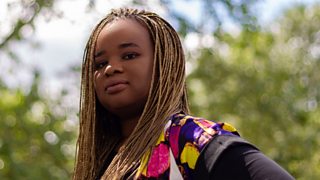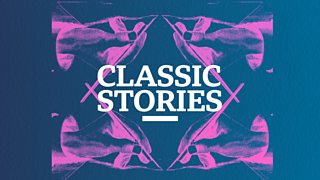Brilliant audiobooks from 2020
To help you hunker down in the cold days of winter, we’ve rounded up the best bingeable audiobook boxsets from this year available to download from Βι¶ΉΤΌΕΔ Sounds. Whether you choose to plug in on a brisk walk, or listen horizontally on the sofa in your pyjamas, here are some brilliant books to whisk you away.
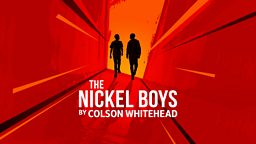
The Nickel Boys by Colson Whitehead
The Nickel Boys, a Pulitzer Prize-winning triumph of a book, tells the story of Elwood Curtis, a black boy growing up in 1960s Florida. Elwood is a high achieving student, whose hard work gets him recommended for free classes at a college south of his hometown, Tallahasse. When he hitches a lift there with a driver who turns out to be a car thief, Elwood’s life veers off course, and he’s sent to Nickel, a ruthless reform school. The hellish Nickel Academy is based on a genuine reform school that operated for over a century, where some 81 boys died and hundreds of others were brutally beaten and abused. Elwood’s only glimmer of hope in the inhumane institution is his friendship with Turner, who is smart, kind and wise to the ways of the world.
-
![]()
Listen to The Nickel Boys
Colson Whitehead's electrifying Pulitzer Prize-winning novel, read by Rhashan Stone.
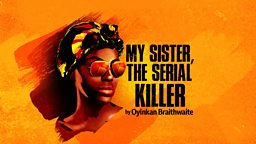
My Sister, the Serial Killer by Oyinkan Braithwaite
Sisterhood is a fiercely tight bond, but what are its limits? As the title suggests, Oyinkan Braithwaite’s brilliant novel tells the story of two young women: Korede, a sensible, hardworking nurse, and Ayoola, an effortlessly glamorous serial killer. Protective Korede gets wrapped up in Ayoola’s drama when she calls her asking for help cleaning up, after Ayoola stabbed her boyfriend to death. This isn’t a one-off occurrence, either. The only person Korede can confide in is Muhtar, a comatose patient in the hospital where she works. This dark, disturbingly funny, novel puts sibling loyalty to the test.
-
![]()
Listen to My Sister, the Serial Killer
Fiendishly comic crime novel, set in Lagos, Nigeria.
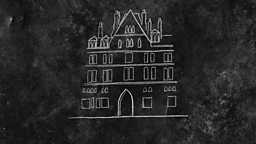
The Hotel by Daisy Johnson
If the horror show that is 2020 hasn’t been enough to keep you awake at night, then this unnerving series of ghost stories just might. In each episode of Daisy Johnson’s deliciously unsettling series, readers including Nicola Walker, Maxine Peake and Juliet Stevenson tell the stories of a hotel on The Fens. The Hotel is cloaked in mystery. Why is it only women who are haunted by it? Was the building doomed from the start? What will happen when a restless young girl decides to explore her surroundings?
-
![]()
Listen to The Hotel
Daisy Johnson's series of ghost stories set in a hotel on the Fens.

Queenie by Candice Carty-Williams
Candice Carty-Williams’ novel Queenie gives us all the reassurance we need right now that it’s ok to feel a bit lost in life. Navigating London life as a 25-year-old journalist, Queenie is having somewhat of an identity crisis, unable to totally fit in with either her Jamaican or British cultures. Finding herself ‘on a break’ with her long-term boyfriend Tom, and with her self-esteem at rock bottom, she ends up having a series of disastrous flings. Queenie’s friends pull her through, and she discovers that finding yourself is more important than finding Mr Right. Funny, warm and relatable, Queenie will be a reassuring listen for anyone whose life seems to be all questions and no answers.
-
![]()
Listen to Queenie
Meet Queenie. She's a funny, intelligent, loving, expressive, dramatic, catastrophist.
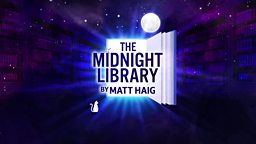
The Midnight Library by Matt Haig
Matt Haig’s bestselling novel is a story of second chances. When Nora Seed wakes up in the liminal space between life and death, she finds herself not in Purgatory but in a library. Nora’s life so far has been defined by misery, but the library offers up boundless possibilities. Contained within the library’s books are the alternate stories of the lives you could have lived had you made different decisions along the way. With the help of librarian Mrs Elm, Nora has the chance to turn things around and undo her regrets – but will that really help her uncover the best way to live? The Midnight Library is brought to life by narrator Bryony Hannah.
-
![]()
Listen to The Midnight Library
Between life and death there is a library - The Midnight Library. Nora finds herself there and discovers that each book tells the story of a different life she could be leading.
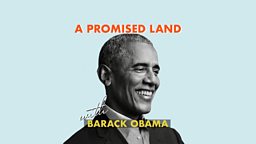
A Promised Land by Barack Obama
In A Promised Land, coined by Waterstones as ‘the biggest book of the decade’, former US president Barack Obama reads from the first volume of his memoir. The book takes us through his teenage years as ‘Barry’ while he figured out his place in the world, explores the headiness and exhaustion of the campaign trail and landmark moments of his first term in office. In this audio adaptation, Barack Obama reads extracts from his memoir. We hear his early impressions of the Oval Office, the glitz of his inauguration, the brutality of inheriting an economic crisis, a meeting with the president of Russia, his personal reasons for believing in universal healthcare, and the difficulties he had to overcome to try and achieve it. Weaved through the narrative we get a glimpse of his home life with Michelle and their daughters Malia and Sasha.
-
![]()
Listen to A Promised Land
Barack Obama reads from the first volume of his presidential memoirs, offering a revealing insight into his life, work and inspirations.
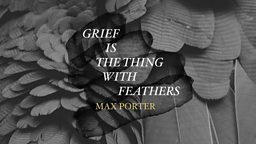
Grief is the Thing With Feathers by Max Porter
Max Porter’s debut novel tells of a family in the throes of grief after losing a wife and mother. Crow, a feathered Mary Poppins-esque healer and caretaker, appears in the night and promises to stay until he is no longer needed. We see the struggles of Ted Hughes scholar Dad, his bewildered boys, and the infinite wisdom of Crow who draws them gradually from mourning into hope. In this adaptation, Crow is voiced by Toby Jones, Dad by John Hollingworth and Boy by Will Taylor.
-
![]()
Listen to Grief is the Thing With Feathers
A deeply moving and highly original book about the sudden loss of a loved one. With Toby Jones, John Hollingworth and Will Taylor.
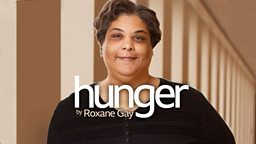
Hunger by Roxane Gay
Read by the author, Hunger is Roxane Gay’s memoir of seeking solace in food following a devastating act of violence when she was just 12. She tells of the trauma she experienced and the process of healing that continues to this day, how food was her way of making her body into a fortress that made her feel safe. Hunger explores how size and visibility are somehow inversely proportional: how the bigger you are, the more invisible you become. This is not a motivational weight loss success story, but a discovery of what it means to understand and look after yourself.
-
![]()
Listen to Hunger
How Roxane set out to make a fortress of her body in the aftermath of a violent assault.

So You've Been Publicly Shamed by Jon Ronson
When Jon Ronson discovered a fake Twitter account posing as himself, he was keen to have it taken offline as quickly as possible. The team behind this spambot, or ‘infomorph’ as they coined it, was made up of three academics. Jon met with them and requested that the fake Jon Ronson be removed from the Internet. They refused. When Jon published a video of his interview with these academics online, the almost militant support he received shamed them into taking down their infomorph. In So You've Been Publicly Shamed you can hear how Jon went from being a keen shamer to someone who finds its power unsettling. One badly-worded tweet, if picked up by the wrong people, can ruin a life. Can shaming ever work for the public good?
-
![]()
Listen to So You’ve Been Publicly Shamed
Writer Jon Ronson reads his account of his journey into the lives of the publicly shamed.
-
![]()
The Nickel Boys by Colson Whitehead
Colson Whitehead's electrifying novel, set in Jim Crow-era Florida. Read by Rhashan Stone.
-
![]()
Bookclub with Oyinkan Braithwaite
James Naughtie talks to Oyinkan Braithwaite about her novel My Sister, The Serial Killer.
-
![]()
Six lessons we can learn from Reasons to Stay Alive
Some positive lessons Matt Haig learnt while overcame debilitating mental illness.
-
![]()
Nine classic audiobooks to help you ace English Literature
We’ve selected nine classic masterpieces that are guaranteed to have you hooked.









